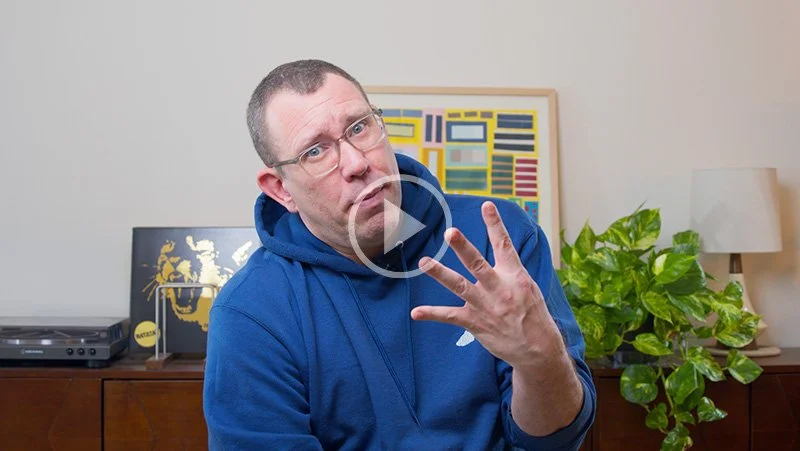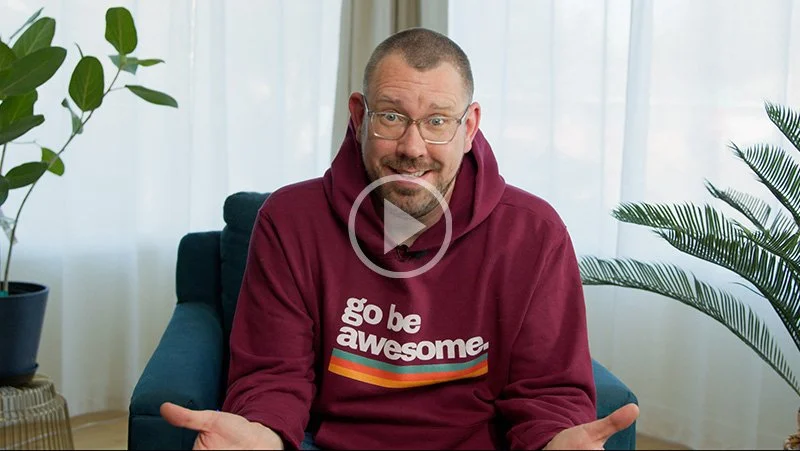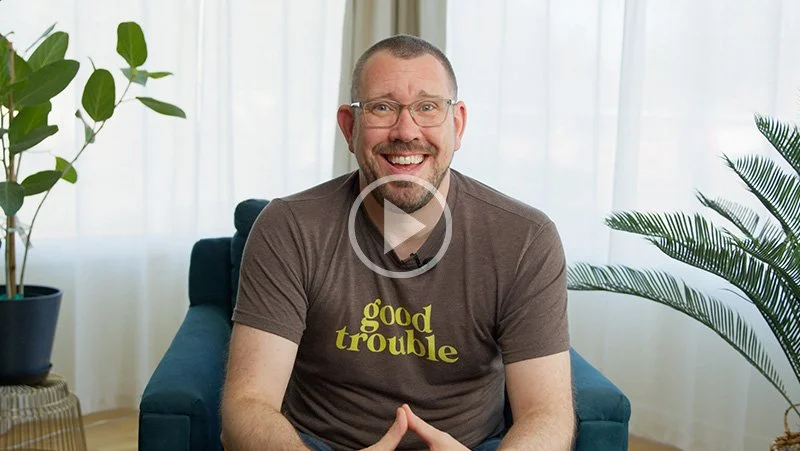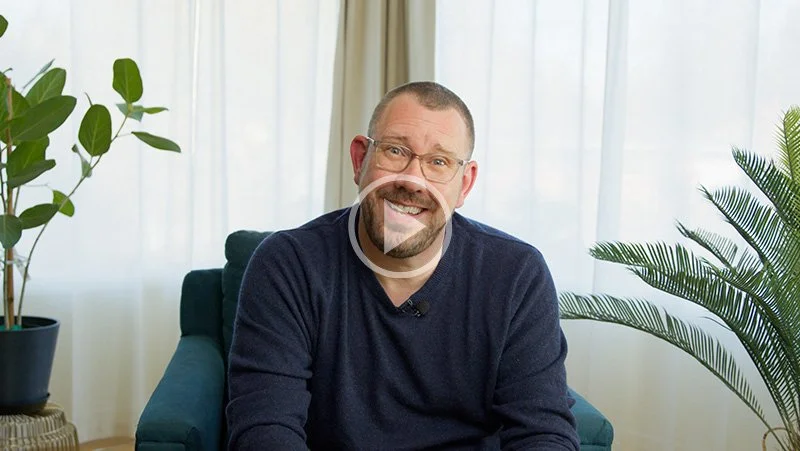Improving Emotional Intelligence Part 4: Stop Talking Only About You
Welcome to the #culturedrop. Every Tuesday, Galen Emanuele emails tools to advance leadership skills, team culture, and personal growth. No spam, just great content. Sign up now to get it in your inbox.
This week's #CultureDrop is the fourth of a series on how to become more emotionally intelligent. You can find links to previous vids at the end of this post.
Improving EQ Part 4: Stop Talking Only About You.
Welcome to part four of our "How to Be More Emotionally Intelligent" series. Today we're diving into a crucial aspect of EQ: being aware of how much you talk about yourself in conversations. This is a key component of self-awareness and relationship building, and can significantly impact your social interactions, networking, and yes, romantic relationships.
The trap of self centering.
It's pretty common for some people to unconsciously center themselves in most of their conversations. You hear something and immediately want to chime in with your perspective, experiences, or knowledge.
“If you’re not aware that it’s happening, this habit can overshadow the other person’s voice and turn conversations into monologues about yourself.”
This tendency isn't necessarily malicious — it's often a natural way to connect with others. It’s normal to want to chime in with an, "Oh, I've been there too!" or "I had a similar experience!" However, if you’re not aware that it’s happening, this habit can overshadow the other person's voice and turn conversations into monologues about yourself.
This behavior can be particularly challenging for neurodivergent people and/or those who are more extroverted. It's a good way to connect, but has the potential to come across as dominating the conversation if it’s done with a lack of awareness.
It's not about never sharing your experiences, but about being mindful of the balance between knowing when to chime in, and when to keep the conversation about the other person.
The unsubtle art of oversharing.
Sometimes, it's not just about talking about yourself but over sharing knowledge. You might hear a topic come up and feel compelled to share interesting facts and/or everything you know about it, which can overwhelm the other person.
This tendency can often stem from a subconscious desire to impress or gain the approval of others. However, overdoing it will almost certainly have the opposite effect, making people less inclined to engage with you.
“Sharing information isn’t inherently negative, but it can feel suffocating if it becomes a pattern...”
Again, sharing information isn't inherently negative, but it can feel suffocating if it becomes a pattern, especially when the other person might just want a casual, light conversation. Awareness is key.
To build better relationships: ask, don't tell.
A critical aspect of high EQ is the ability to create space for others in conversations. This is especially important in any setting where building relationships is a priority like business meetings, networking events. customer interactions, social gatherings, and going on dates.
Instead of worrying about what you'll say next, focus on being curious and asking questions about others. Engaging them in the conversation by asking about their experiences, thoughts, and opinions creates a more balanced, relaxed,and enjoyable interaction.
Inviting and being interested in other people’s perspective increases your likeability score tenfold. People generally love to talk about themselves, just make sure you’re not the only one doing it and be intentional about making space for other voices.
“Ask open ended questions like “What do you think about this?” or “What’s your experience with that?” to open up the conversation and make it more inclusive.”
Improving conversational skills.
Being a good conversationalist is beneficial to your life and relationships.
To develop this, one practical approach is to prepare questions in advance. Whether you're going into a business meeting, a social gathering, or a casual chat, having a few thoughtful questions ready will help you focus on others rather than yourself.
Ask open ended questions like "What do you think about this?" or "What's your experience with that?" to open up the conversation and make it more inclusive.
Another way to improve in this area is to reflect on your conversations and interactions with others after the fact. Check in to gauge, "Did I ask enough questions? Did I listen to the other person, or was I dominating the conversation?"
Final thoughts.
Self-awareness is a cornerstone of emotional intelligence. It's about understanding yourself and your impact on others.
“Knowing when to stop talking and listen is an important tool for your EQ toolbox.”
Being aware of how much you're talking about yourself and making an effort to include others in the conversation is an easy way to level up. It's not about silencing yourself but about striking a balance.
By curbing your impulse to center yourself or share too much, and knowing when to ask open-ended questions and just genuinely listen to others, you will build stronger, more meaningful relationships. Knowing when to stop talking and listen is an important tool for your EQ toolbox. It’s a small change that can make a big difference in how you're perceived and how well you connect with others.
Related Blogs:
Improving Emotional Intelligence Part 1: Emotions vs Behavior
Want more?
This article was created by Galen Emanuele for the #culturedrop. Free leadership and team culture content in less than 5 minutes a week. Check out the rest of this month's content and subscribe to the Culture Drop at https://bit.ly/culturedrop








